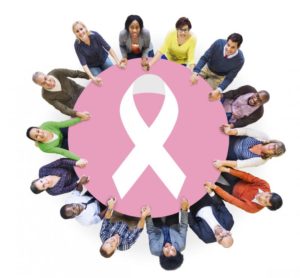Integrative oncology is the combination of mainstream cancer care with evidence based alternative therapies including acupuncture, massage therapy, physical fitness measures such as Pilates and Yoga and mind body modalities such as meditation to minimize the side effects of cancer treatment and enhance overall quality of life.
 Medical cancer treatment often involves surgery to excise metastases. Surgical procedures leave superficial scars on the skin. The morphology or composition of scars is analogous to an iceberg, meaning that the magnitude of the scar is far more expansive below the surface. Muscle, connective tissue and fascia below the skin’s surface can become bound down, severely limiting range of motion.
Medical cancer treatment often involves surgery to excise metastases. Surgical procedures leave superficial scars on the skin. The morphology or composition of scars is analogous to an iceberg, meaning that the magnitude of the scar is far more expansive below the surface. Muscle, connective tissue and fascia below the skin’s surface can become bound down, severely limiting range of motion.
Manual therapy interventions including massage therapy and myofascial release technique are effective for minimizing scar tissue and restoring function the trunk and shoulder girdle after a mastectomy.
Acupuncture is also effective for this, working by altering the activity of fibroblasts; the cells that lay down connective tissue, acupuncture can be beneficial in minimize tension along scar tissue lines.
Acupuncture and Cancer
Acupuncture increases opioid production, the synthesis of our body’s natural pain fighting chemical. This renders acupuncture ideal for a cancer patient who may be sensitive to medication or not wanting to endure further side effects from pharmacological treatment.
Acupuncture is most widely used in oncology to treat the symptoms or side effects caused by cancer treatment enabling cancer patients to have a better quality of life. Acupuncture is used to treat pain, nausea and vomiting, hot flashes, fatigue, anxiety and depression and insomnia.
Alicia Hagedorn B.Sc.P.T., M.Cl. Sci. (Ortho), Certified Lymphedema Therapist
Alicia offers specialized physiotherapy treatment to assist clients overcome side-effects caused by cancer treatment including: Pain, acute surgical swelling, fatigue, weakness, scarring in myofacsial and joint tissue (related to radiation), lymphedema and chemotherapy induced neuropathy (nerve irritation).
Both Pre-Cancer Treatment and Post-Cancer Treatment Consultations are appropriate.
Pre-Treatment Consultation: Includes taking baseline measurements of extremity to monitor for abnormal swelling and lymphedema post-surgery, reviewing post-surgery exercise protocol and education regarding signs/symptoms of lymphedema and how to prevent it.
Post-Treatment Consultation: Appropriate if one or more side-effects are present including; pain, swelling, nerve irritation, decreased range of motion and/or decreased strength.

Recent Comments